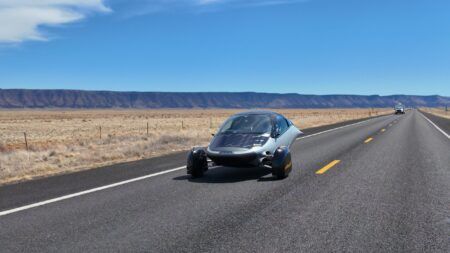Pioneering additive manufacturing company Sakuu has announced that it is the first company to 3D-print fully functional batteries in custom shapes and sizes with patterned openings for thermal management in a completely dry process. With the focus of battery development being integral to EV development, this news is potentially an important step forward.
Utilizing its Kavian platform, Sakuu claim they will be able to create printed batteries of world-class energy and power densities, including Lithium Ion, Lithium Metal, and Solid-State batteries, at high-volume production speeds.
The company reports that since December 2022 it has successfully and consistently 3D printed fully functional performant batteries in custom shapes and sizes. These batteries were printed as patterned cells containing patterned openings for thermal management, in a fully dry process, at Sakuu’s Silicon Valley battery pilot line facility.This marks a first-of-its-kind recorded manufacturing achievement and is an important step towards Sakuu’s planned commercial-scale production of next-generation SwiftPrint batteries, including solid-state batteries, from its Kavian platform in gigafactories worldwide.
“Our development shows that the Kavian platform can enable commercial-scale, sustainable production of a wide range of battery technologies,” said Karl Littau, Chief Technology Officer at Sakuu. “Whereas traditional methods of advanced cell manufacturing continually run into core impediments that prevent mass-scale production, our printing process can allow for substantial gains in energy density for a completed battery. Our platform can customize the form factor of the battery—whereby the battery itself can become part of product design via customized shapes and sizes. This is a profound moment with enormous implications for advanced battery manufacturing.”
Sakuu has invented a fully industrialized process for printing batteries using a proprietary multi-material, multi-layer approach in a parallel and dry process, instead of slow layer-on-layer printing or screen-printing—inherently wet processes that require significant energy to remove unwanted solvents and are susceptible to poor printing quality and unreliable production. Sakuu claim this invention can deliver low-cost high-speed manufacturing capability coupled with flexibility in shape and form, while also delivering batteries in core categories that matter most to clients and customers alike.





